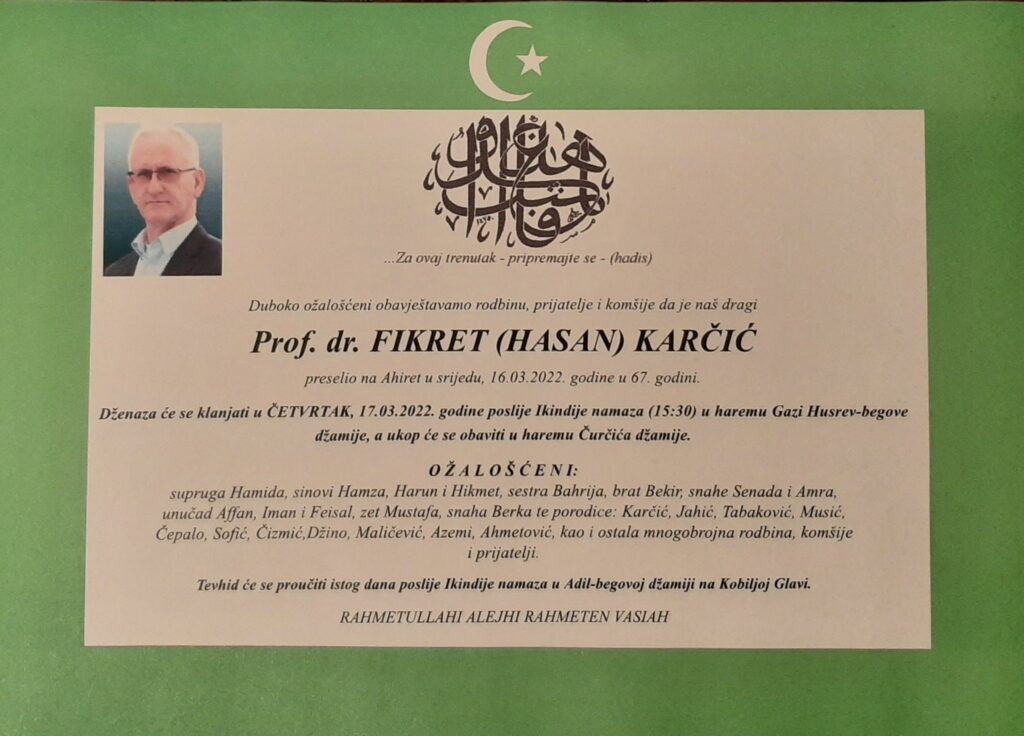Tweet from @harunkarcic with notification of the passing away on 16 March 2022 of one of Bosnia-Herzegovina’s leading academics, Fikret Karčić, at the age of 66.

Professor Fikret was Professor and former Dean (2003-2007) of Qur’anic Studies at the Faculty of Islamic Studies, University of Sarajevo. He delivered lectures at Ljubljana University, Yale University, Boston University, Zagreb University and Istanbul University. He was the Allianzguest Professor of Islamic Studies at the Ludwig Maximilian University (Munich). His published books include Hermeneutika Kur’ana (The Hermeneutics of the Qur’an) (enlarged PhD, Zagreb: 1990) and Kur’an u savremenom dobu (The Qur’an in the Contemporary Age), two vols. (Sarajevo: Bosnian Cultural Centre, 1997).
An example of his scholarship is a scathing review published in the American Journal of Islamic Social Sciences (Vol. 34 No. 1, 2017) of Dan Diner’s Lost in the Sacred (an English translation of Veriegelte Zeit or Sealed Time).
Sealed Time represents an overview or inventory, so typical of him, of development (or standstill) in the Muslim world (die muslimische Welt) , the measure of which is always the West (der Westen). What dominates and rules in this book is Hegel’s matrix of history’s overall movement towards its purpose, as embodied in the supreme – namely West. It was in the West that Weltgeist was revived as the world spirit, and therefore all of he efforts that men tried or dared to undertake have served the West’s emergence [. . . ] In this review, we intend to critically question some of the ways he [Dan Diner] used to address these themes, as well as to critically assess many of his views and opinions. We contend that it is precisely due to his treatment of these themes that he falls into several imprecise, incorrect and at times completely untruthful generalisations – even in places where it seems his generalisations can withstand criticism. Also, due to his selective use of themes and arguments, as well as examples he provides to illustrate his arguments and statements, we dare say that his book often loses its academic leverage and reduces itself to a pamphlet, angry polemics, and a nervous and capricious elaboration on the centuries lived by Muslims in all spheres of human activity.
Professor Fikret would go out of his way to help scholars and researchers with an interest in recent Bosnian history, particularly the Mladi Musulman period involving Alija Izetbegovic.
Inna lillah wa inna ilayhi rajiun.
